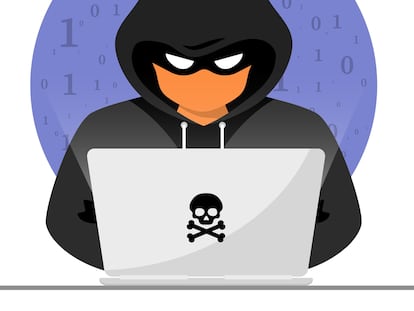Digital piracy in Spain is on the rise: it's growing by 9% and affecting all industries.

The latest report commissioned by the Creators Coalition breaks years of downward trend and records a market value of €42.782 billion in illicit content, the highest figure on record.

Digital piracy in Spain is on the rise again. For a decade, the trend was downward, but it has now been broken. In 2024, 7.33 billion illegal accesses to content were recorded, affecting all industries—music, film and TV series, video games, books, and newspapers. The economic value of these works is €42.782 billion, 9% more than in 2023, the highest figure recorded by the Coalition of Creators and Content Industries. The industry's economic loss—or lost profits—amounts to €3.032 billion.
This was stated at the 2024 Observatory on Piracy and Digital Content Consumption Habits, presented this morning at the headquarters of the Ministry of Culture in Madrid. Carlota Navarrete, director of the Coalition, said she received the results "with alarm and some frustration."
According to the report, 64% of internet users justify piracy with a simple argument: "To avoid paying for something I might not like later." This is likely why the sectors that have seen the greatest growth this time around are film and TV series . Film saw 1.045 billion films downloaded illegally in 2024 (90% more than in 2023). TV series were not far behind: 1.513 billion downloads (a 59% increase), equivalent to €2.086 billion. Furthermore, half of pirated works across all industries are new releases, new releases, and recent releases. In fact, 49% of this content is less than a year old.
Search engines are still the preferred method for users, with Google in almost the majority of cases. Social media has not been able to overtake the main search and access portal for illegal platforms, but it is increasingly gaining ground as a means. The report again focuses on social media and instant messaging . All of them have increased: Telegram (39%), Facebook (36%), WhatsApp (27%), and Instagram (26%). These represent a new block in the study, as had they been included in the year-on-year comparison, piracy would have increased by 14%, not just 9%. Navarrete points out that artificial intelligence is not considered in the study: "We have collected a first wave of data, but it is not consolidated."
It's true that there has been an improvement in the recognition of pirated websites. The Observatory indicates that 6 out of 10 users claim to be able to distinguish between legal and illegal platforms. However, the number of Internet users is increasing , as is the number of consumers of illegal content (6% more than last year). The industry's economic loss—or lost profits—is €3.032 billion, broken down as follows: €752 million for newspapers and magazines, €722 million for music, €721 million for films and TV series, €369 million for images and photographs, €260 million for books, and €208 million for video games.
Do you want to add another user to your subscription?
If you continue reading on this device, it will not be possible to read it on the other device.
ArrowIf you want to share your account, upgrade to Premium, so you can add another user. Each user will log in with their own email address, allowing you to personalize your experience with EL PAÍS.
Do you have a business subscription? Click here to purchase more accounts.
If you don't know who's using your account, we recommend changing your password here.
If you decide to continue sharing your account, this message will be displayed indefinitely on your device and the device of the other person using your account, affecting your reading experience. You can view the terms and conditions of the digital subscription here.
EL PAÍS






